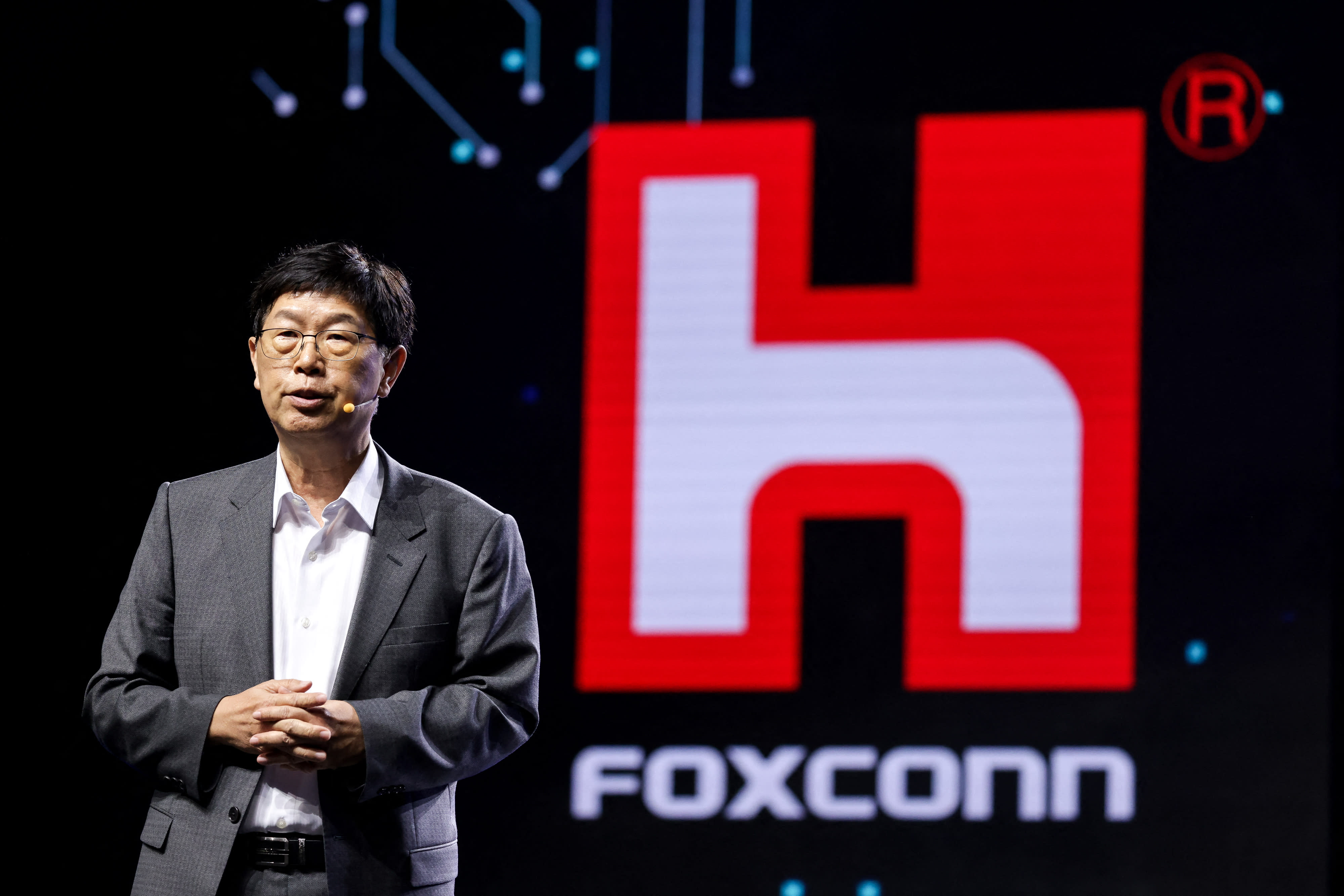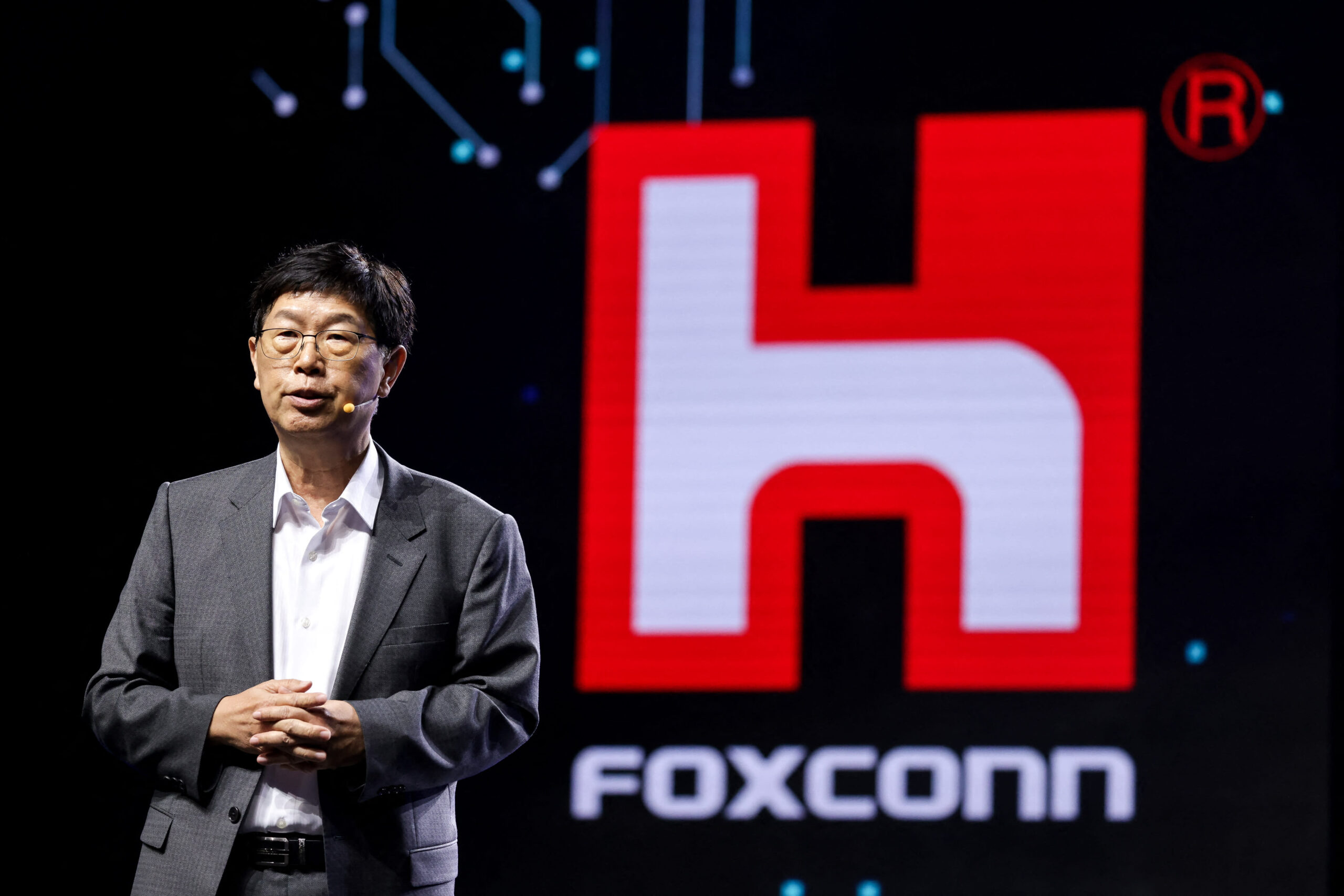
The boom in corporate investment into artificial intelligence infrastructure still has some way to go as large language models are continuing to evolve, according to the CEO of Foxconn, a key supplier to Apple.
Speaking with CNBC’s Emily Tan, Chief Executive and Chairman of Foxconn Young Liu, said that the AI boom “still has some time to go” as advanced language models from the likes of OpenAI are becoming increasingly intelligent with each new iteration that comes out.
He said that the general movement in the tech industry today is trending toward a form of AI that is as intelligent — if not more intelligent — than humans. This type of AI is referred to in the industry as “AGI,” or Artificial General Intelligence.
“We … heard about AGI, and we’ll talk about different levels of intelligence. If you divide [intelligence] into four different levels, we’re at level two. There’s still level three and level four to go,” Liu told CNBC in an interview that aired Tuesday.
OpenAI is one of the leading companies pushing for AGI. Sam Altman, CEO of the Microsoft-backed startup, has previously said AGI will be developed in the “reasonably close-ish future,” however he’s also said he thinks it will “change jobs much less than we all think.”
The company, which released its upgraded GPT-4o model this summer, revealed last week that it had raised $6.6 billion at a $157 billion valuation. OpenAI is still working toward releasing its next-generation LLM, GPT-5, however it’s yet to share timing on when the new language model will launch.
Liu said that progress toward increasingly intelligent AI can only be a good thing for the AI server industry, which has been a key boon to Foxconn’s growth this year.
“I think for the AI server industry, I think we still have some time to grow,” Liu added. “With the AGI capability growing, the age [of] AI devices will be another industry we should watch carefully.”
Strong demand for Nvidia’s Blackwell chip
Foxconn, which trades as Hon Hai locally in China and Taiwan, is the world’s largest contract manufacturer for the electronics industry. The firm produces and assembles Apple products, including about two out of every three iPhones.
On Saturday, Foxconn said that it reported better-than-expected sales figures. The firm said its revenues came in at 1.85 trillion Taiwanese dollars ($57.5 billion) in the September quarter, up 20.2% year-over-year. That “exceeded the company’s original expectations of significant growth,” according to Foxconn.
The strong performance came off the back of heightened demand for AI servers, which Foxconn manufactures for several major global tech giants, including Amazon, Google, Microsoft, and Nvidia.
The company is currently on track to ship Nvidia’s next-generation Blackwell GPU (graphics processing unit), an advanced AI server chip, in the fourth quarter of 2024, Liu told CNBC. Blackwell is also known under the brand name GB200.
Asked about the order book for Blackwell, Liu said that demand for the chip is “much better than we thought,” adding that the firm is building new factories in Mexico to help service outsized demand for the product.
His comments tally with what Nvidia CEO Jensen Huang has said about demand for Blackwell previously. Last week, Huang told CNBC’s “Closing Bell Overtime” that demand for Blackwell was “insane.”
“Everybody wants to have the most and everybody wants to be first,” Huang said during the interview, which aired last Wednesday.
Blackwell, expected to cost between $30,000 and $40,000 per unit, is in hot demand from companies like OpenAI, Microsoft, Meta and other firms building AI data centers to power products like ChatGPT and Copilot.
AI devices the next growth opportunity
Beyond producing IT infrastructure for cloud-based AI applications like ChatGPT, Foxconn is also powering the new iPhone 16, which comes with the latest generative AI features Apple hopes will breathe new life into the smartphone industry.
Foxconn’s Liu said that “on-device” AI — where data is processed directly on a mobile device, rather than a cloud or server — represents the next substantial growth opportunity for the company.
“I think the genAI-related device will be the next way to grow,” Liu told CNBC. “Currently, we’re seeing this on the cloud side. You see that genAI cloud equipment was very much booming.”
“But in the next phase, what we’re seeing will be the Gen AI devices,” he added. “We think that will be the next big way to boom … We have very high hopes on those devices.”
Still, it’s worth noting though that Apple hasn’t yet released its AI system, called Apple Intelligence, on iPhone. The company is expected to release Apple Intelligence to the public in a beta version later this fall as part of a new software update.
Smartphone makers are hoping for a new era of continuous growth for the smartphone industry, known as a “supercycle,” on the back of the AI features they’re cramming into their newer handsets. Beyond Apple, Samsung, Google and Huawei spinoff Honor have all gone big on AI with their new phone launches.
Smartphone sales have been gaining momentum this year after several consecutive years of declines. In the second quarter of 2024, smartphone shipments climbed 6.5% year-over-year to 285.4 million units, according to preliminary data from IDC — their fourth straight quarter of growth.


